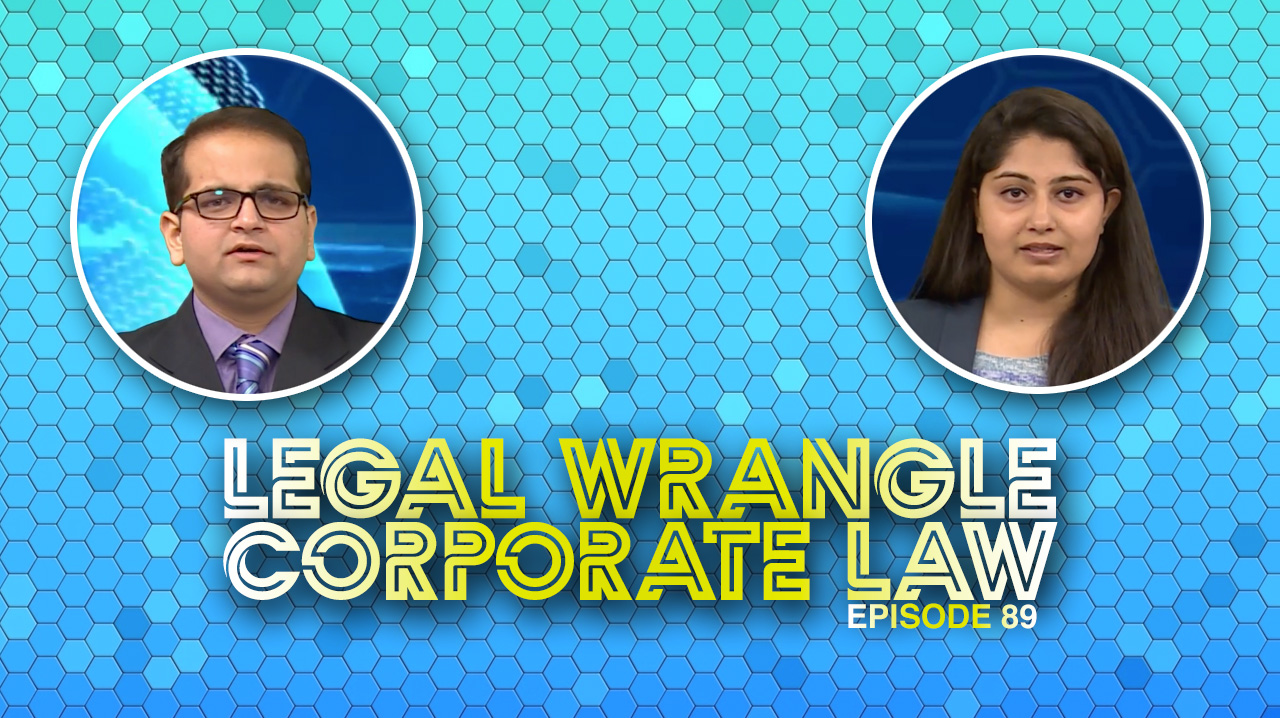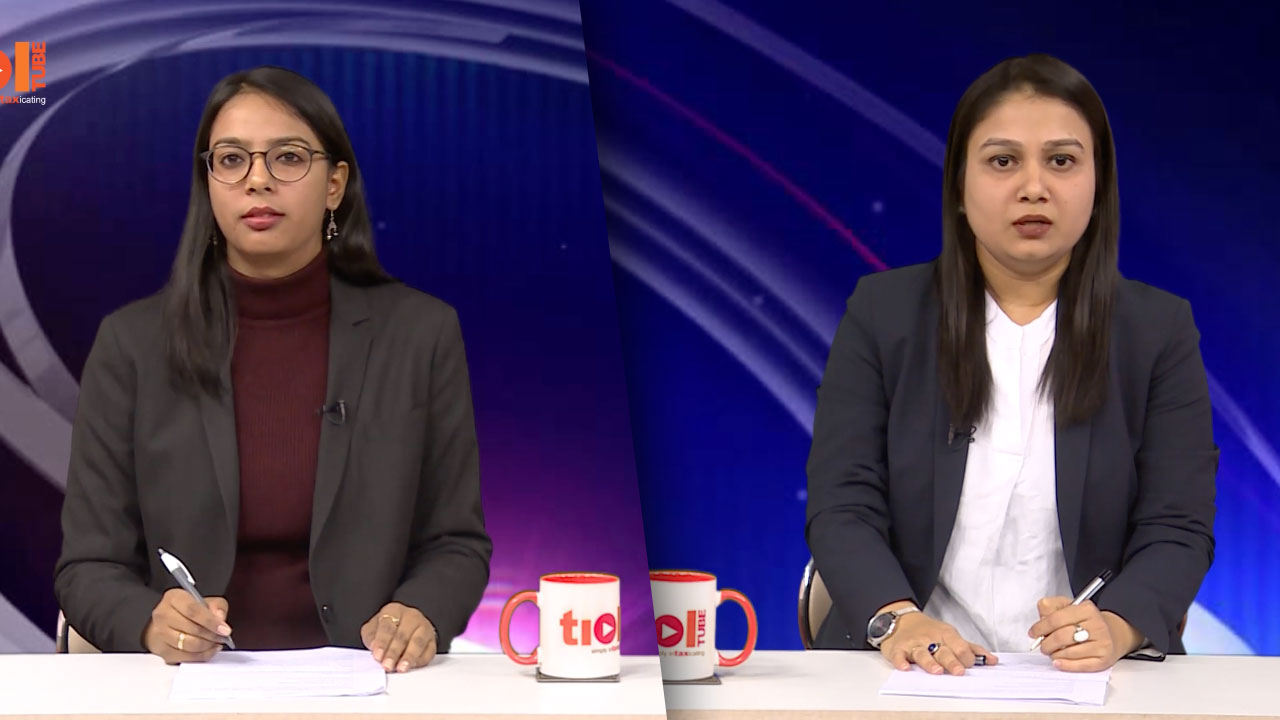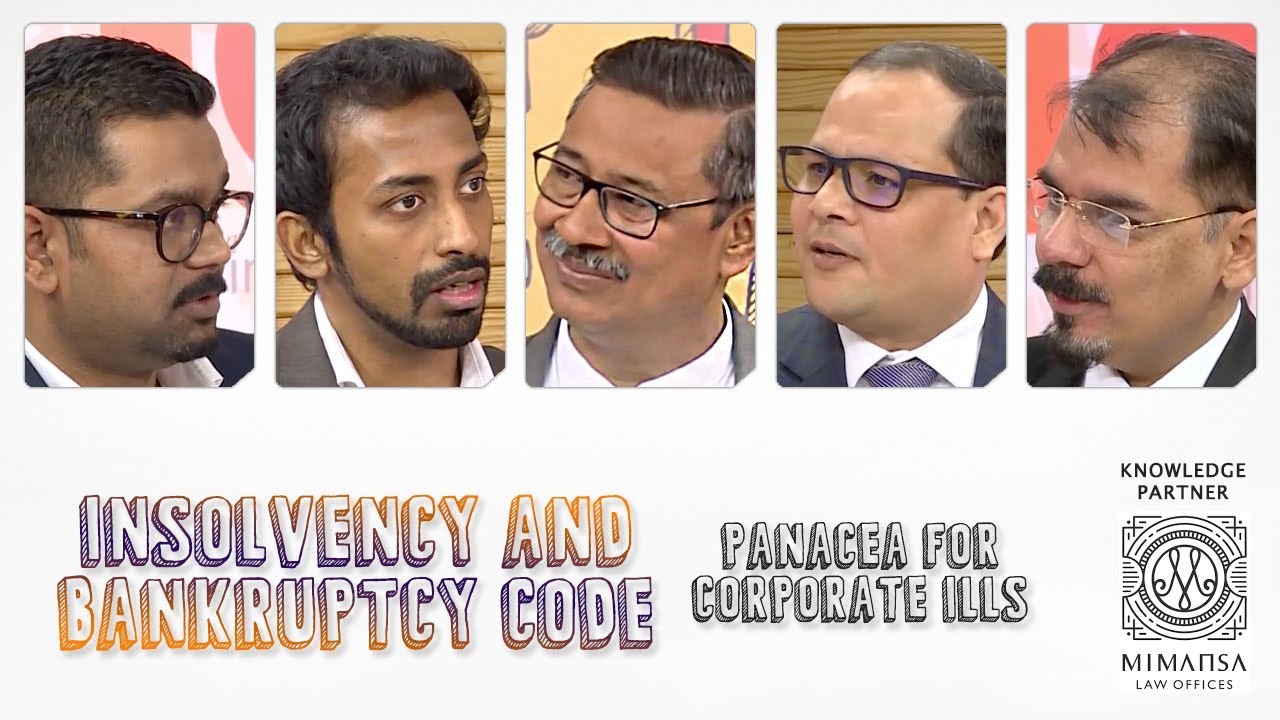SERVICE TAX
2019-TIOL-25-CESTAT-MUM + Case Story
Allied Blenders And Distillers Pvt Ltd Vs CCE & ST
ST - IT authorities assessed the remuneration paid to the directors as salary - Directors who are concerned with the management of the company, were declared to all statutory authorities as employees of the company - company does not pay the director's sitting fee to any of the directors - no contrary evidence produced by the Revenue to establish that the directors are not involved in the day-to-day function of the Company but participate only in Board Meetings and were consequently paid remuneration - Appellant have also placed on record the Form-16 issued by them indicating deduction of income tax at source on the salary paid to each of the Directors - appellant had also produced the contribution made to the Employees Provident Fund for each of the Directors, as required in case of other employees under the relevant Laws - To discredit the said statement, no contrary evidence was produced by the Revenue - no merit in the impugned order confirming the service tax demand of Rs.2,48,67,525/- on the remuneration paid to the directors during the period from July 2012 to March 2015 on reverse charge basis – appeal allowed: CESTAT [para 15, 16, 17]
- Appeal allowed : MUMBAI CESTAT
2019-TIOL-18-CESTAT-DEL
Triangle Engineering Pvt Ltd Vs CCE & ST
ST - The assessee is a service tax registration holder for providing service of Architect Consulting Engineering Services - Later he got included the Real Estate Agent and Residential Construction of Complex Services w.e.f. 25.11.2005 - During an audit, Department observed that assessee had neither filed ST-3 return nor had paid service tax in year 2004-05 and 2005-06 for value of taxable services under category of Commercial or Industrial Construction Services - The demand qua all the four construction works awarded to assessee in financial year 2005-06 have been dropped by Adjudicating Authority on the ground that the construction was of individual residential house and was not that of residential complex and that the road is excluded from the ambit of Commercial and Industrial Construction Service - Out of the six construction works awarded to assessee in year 2006-07, demand qua 4 of them have been dropped for the same reason - The controversy to be adjudicated is confined to a simple question as to whether the demand confirmed under Works Contract Service and under Site Formation and Clearance Excavation and Earthmoving and Demolition Service is sustainable despite that the said demand was not raised vide the impugned SCN - Law has been settled that when no demand was made from assessee under category of Works Contract in SCN, the Adjudicating Authority could not have confirmed the demand under said category - The Adjudication Order was held to have travelled beyond the scope of SCN and the demand was held as being not sustainable under Works Contract which otherwise was raised in SCN under another category - Tribunal rely upon the case of Ballarpur Industries 2007-TIOL-153-SC-CX followed in the case of Reliance Ports and Terminals Ltd. 2015-TIOL-3053-HC-AHM-CX - Similarly, the demand confirmed under activity of Site Formation and Clearance Excavation and Earthmoving and Demolition Service is also not sustainable for the same reason - Resultantly, the question of any interest or penalty upon the assessee retains no significance: CESTAT
- Appeal allowed : DELHI CESTAT
CENTRAL EXCISE
2019-TIOL-17-CESTAT-MAD
Caress Industries Vs CGST & CE
CX - The assessee is manufacturer of "Micronutrients" and availing SSI exemption - Pursuant to audit, it emerged that assessee was also engaged in manufacture of Chelated Zinc as 12%, Chelated Iron as 12% Fe, mixture of Chelated substance - It emerged that assessee is manufacturing said products under nil rate of duty vide Notfn 4/2006-CE classifying the same under CETH 3105 as "other fertilizers" - Department took a view that the products would appropriately fall as 'Plant Growth Regulators' under CETA 3808 9340 - The issue of classification of 'micronutrients' has been in confusion for a number of years - No doubt, the Commissioner (A) has relied upon the judgment of Supreme Court in case of Karnataka Agro Chemicals 2008-TIOL-117-SC-CX - However, Supreme Court has only remanded the issue back to the adjudicating authority to examine whether addition of 0.31% of Nitrogen would convert 'Plant Growth Regulators' into nutrient falling under Heading 3105 of the CETA - From the test reports of Customs Laboratory found in the file, it is seen that percentage of Nitrogen in chelated zinc has been found at 1.8%, in MNM chelated as 2.5% and in chelated iron it is 3.3% with regard to test report - One of the main ground for the view taken in impugned order is that though nitrogen is present in impugned goods, it is present in very low percentage which is not sufficient to be called as essential constituent of fertilizer - There being no minimum prescribed percentage of Nitrogen prescribed in Note 6 to Chapter 6 of Central Excise Tariff Act, the requirements of that Note being classified as micronutrient in other fertilizers, CETA 3105 are satisfied - The Board's circular dated 6.4.2016 also does not specify any minimum percentages for such elements to be considered as "essential constituents" - Evidently, the essentiality of these elements is then to be decided by "essential manner" that they act upon the soil or the 'essential role' of these elements in the fertilizing action per se - However, there is nothing forthcoming on record nor any evidence brought forth by the department to indicate that the Nitrogen present in the impugned goods though in admittedly small percentages are NOT an 'essential constituent' of the impugned goods - This being so, Tribunal is afraid that there is no other reason why the impugned goods cannot be classified under CETA 3105 as clarified in CBEC Circular dated 6.4.2016 - The impugned order cannot sustain, same is set aside: CESTAT
- Appeal allowed : CHENNAI CESTAT
2019-TIOL-16-CESTAT-HYD
Navabharat Ventures Ltd Vs CCT
CX - The assessee is a manufacturer of sugar and they stored sugar in godowns outside the factory premises, after paying duty on the same because the place in the factory was not sufficient - Thereafter, the assessee had sold sugar from these godowns - The SCN only sought to deny credit on the ground that godowns are not "places of removal" not on the ground of lack of nexus with manufacture based on which the demand was confirmed - These godowns are places of removal in terms of Sec. 4(3)(c) of Central Excise Act - Nevertheless, the nexus with manufacture is also decided in identical cases in case of DSCL Sugar 2012-TIOL-963-CESTAT-DEL and Thiru Arooran Sugar Ltd 2017-TIOL-1067-CESTAT-MAD and it has been held that sugar factories are entitled to input service credit on rent paid on godowns in which they stored sugar after paying duty - Respectfully, following the same, the impugned orders is set aside: CESTAT
- Appeal allowed : HYDERABAD CESTAT
2019-TIOL-15-CESTAT-CHD
Gawar Construction Ltd Vs CCE
CX - M/s GR- Gawar (J.V.) got a contract from Haryana State Road and Bridge Development Corporation Ltd. - The partner of said Joint Ventrue is assessee who executed entire work on 99.5% of the rate accepted by Joint Venture contractee - The material to be used in implementation of said contract was exempt from Duty in terms of Notfn 108/95 - They procured steel and cement without payment of duty, however bitumen was purchased from Oil Marketing Companies on payment of duty because the suppliers did not agree to supply material without payment of duty - During period 22.09.2011 to 24.01.2012, the assessee purchased bitumen on payment of duty and filed refund claim of duty paid on bitumen - Same was rejected - Although as per the notification, supplier of bitumen was not required to pay duty in terms of Notfn 108/95- CE, but the supplier has supplied goods on payment of duty to assessee and it is a fact that as per said notfn duty was not payable on the goods - In that circumstances, the persons who has suffered duty on said goods is entitled to file refund claim in terms of proviso to Section 11(B)(2)(e) of Central Excise Act as held by Apex Court in case of Mafatlal Industries Limited 2002-TIOL-54-SC-CX-CB - Therefore, rejection of refund claim on said ground is not sustainable - As the issue raised in SCN is that the authorities with whom the refund claim has been filed have no jurisdiction but the said authority entertained the refund claim filed by assessee on merits, therefore, in the light of decision of Tribunal in case of Swiber offshore Construction PTE. Ltd. 2011-TIOL-1550-CESTAT-MUM wherein it has been observed that Tribunal have no jurisdiction to entertain the appeal but Member (T) has remanded the matter back for fresh consideration - In that circumstance, the appeal cannot be dismissed on the ground of lack of jurisdiction, therefore, as in this case, adjudication authority as well as the appellate authority has dealt the refund claim on merits, in that circumstances, it cannot be said that the authorities below have no jurisdiction to entertain the refund claim with regard to admissibility of refund claim.
The another ground of rejection of claim is that the refund claim is barred by time limit in terms of provisions of Section 11B of the Act - Admittedly, the refund claim initially was filed by assessee before DGFT and DGFT has rejected their refund claim only on 10.03.2013, thereafter the refund claim was filed by assessee on 26.08.2013 - In these circumstances, limitation for filing the refund claim was start on 10.06.2013 i.e. relevant date and the refund claim was filed in time - Moreover, assessee was not liable to pay duty on said goods but the supplier of bitumen forced the assessee to pay duty - Admittedly, in this case no duty was required to be paid on the goods which have purchased by assessee in terms of Notfn 108/95, therefore, it was amount retained by Revenue is impermissible in terms of Article 265 of constitution of India - In that circumstance, assessee is entitled for refund claim of duty paid by them by mistake or forced to pay by the supplier and held that the refund claim is entertainable - Thus, bar of unjust enrichment is not applicable as the duty has been borne by assessee because the duty was not payable on said goods and moreover, no duty has been recovered by assessee from the service recipient, as execution of said work was exempted from payment of duty/service tax, therefore, assessee has been able to pass the bar of unjust enrichment.
The refund claim in impugned order has been denied on the ground which were not alleged in SCN - The said grounds cannot be entertained by appellate authority as those grounds are not the part of SCN and Commissioner (A) cannot travel beyond the allegation made in SCN, therefore, the said refund claim cannot be rejected on said grounds - Assessee is entitled for refund claim in terms of Notfn 108/95-CE of the duty paid on bitumen as assessee has borne the duty on bitumen, therefore, the impugned order is set aside: CESTAT
- Appeal allowed : CHANDIGARH CESTAT
CUSTOMS
2019-TIOL-14-CESTAT-BANG
Herbal Isolates Pvt Ltd Vs CC
Cus - The assessee described its import against various bills of entry listed in impugned order as 'green pepper' under heading no. 0709 99 10 of First Schedule to Customs Tariff Act, 1975 in chapter titled 'Other Vegetables, Fresh or Chilled' which, not being acceptable to the assessing authority, was re-classified under heading no. 0904 11 90 as 'other' 'pepper (genus Piper), neither crushed nor ground' in the chapter titled 'Coffee, Tea, Mate and Spices' - Doubtlessly, the privilege attached to 'advanced authorization' against which imports were effected for, what is undisputably, conversion into products for export should, ultimately, render this exercise to have only academic consequence - The neutralization of taxes and duties, undeniable as they are, will not, according to department, immunize the assessee from penal consequences of failure to fulfill the obligation to make correct declaration or enable the customs authorities to abdicate their responsibility for determination of the appropriate classification - Any alteration in duty arising from re-classification can only be academic and even if the advance authorization were not to be valid, the export consignments would be entitled to neutralization of all the duties that have gone into its production - Nevertheless, this aspect not having been pressed or agitated, Tribunal is compelled to delve into the merits of issue - Spice is a traded commodity, and has been for centuries, with the implication that it must necessarily be in a desiccated form for it to last and to preserve the characteristic that is so tempting to the human race - Spice is, therefore, not the produce of a plant but the product of processing of such produce - Having thus isolated the legislative intent, a perusal of enumerated tariff items under 090411, the last of which has been crystalised as the most appropriate by lower authorities, confirms the supposition that these have been clubbed together for its utility as 'spice' in its processed form - In that scheme, the source should not find a place at the tail end - As pointed out by assessee, the brined/dehydrated product emanating from the processing of 'green pepper' picked from the vine cannot, by any stretch, be accorded a place preceding that of the latter - It would, therefore, appear that, in the form in which the goods were imported, placement within this heading is inappropriate and the appropriateness of the claimed classification may now be turned to - The usage of the expression 'peppers' in the media channels that cater to the privileged few cannot be appropriated as the lingua franca of the trade and that of consumers across centuries till the present - Therefore, the impugned orders lack the mantle of logic and the sanctity of law, same are accordingly, set aside: CESTAT
- Appeal allowed : BANGALORE CESTAT
2019-TIOL-13-CESTAT-HYD
CC Vs Ocean Sparkle Ltd
Cus - The assessee floated an enquiry for Cutter Suction Dredger and received quotation for the same from overseas supplier with additional features and optioned for measuring the quantity of dredged item for an incremental price - On receipt of such Dredger with all the equipments, bill of entry was claimed, claiming the classification under 8905 1000 of Customs Tariff Act, seeking benefit of Notfn 21/2002-Cus from payment of duty - Revenue authorities after conducting first check examination, directed the assessee to file a Bill of Entry for production measuring equipments separately under tariff heading 90.31 and denied the exemption of said notfn 21/2002-Cus - Cutter Suction Dredger which was imported is with the production measuring equipment as a part and parcel of the dredger - It can be seen from the examination report that the production meter is so integrated with the dredging equipment that it cannot be dismantled and is used for as an integral part of the dredger imported - The first appellate authority was correct in holding that production measuring equipment is part and parcel of the dredger and cannot be classified separately under chapter heading 90.31 - Tribunal concur with the views of first appellate authority, the impugned order is correct and legal and does not require any interference, same is upheld: CESTAT
- Appeal rejected : HYDERABAD CESTAT





ADAHEAD_Episode 10.jpg)



